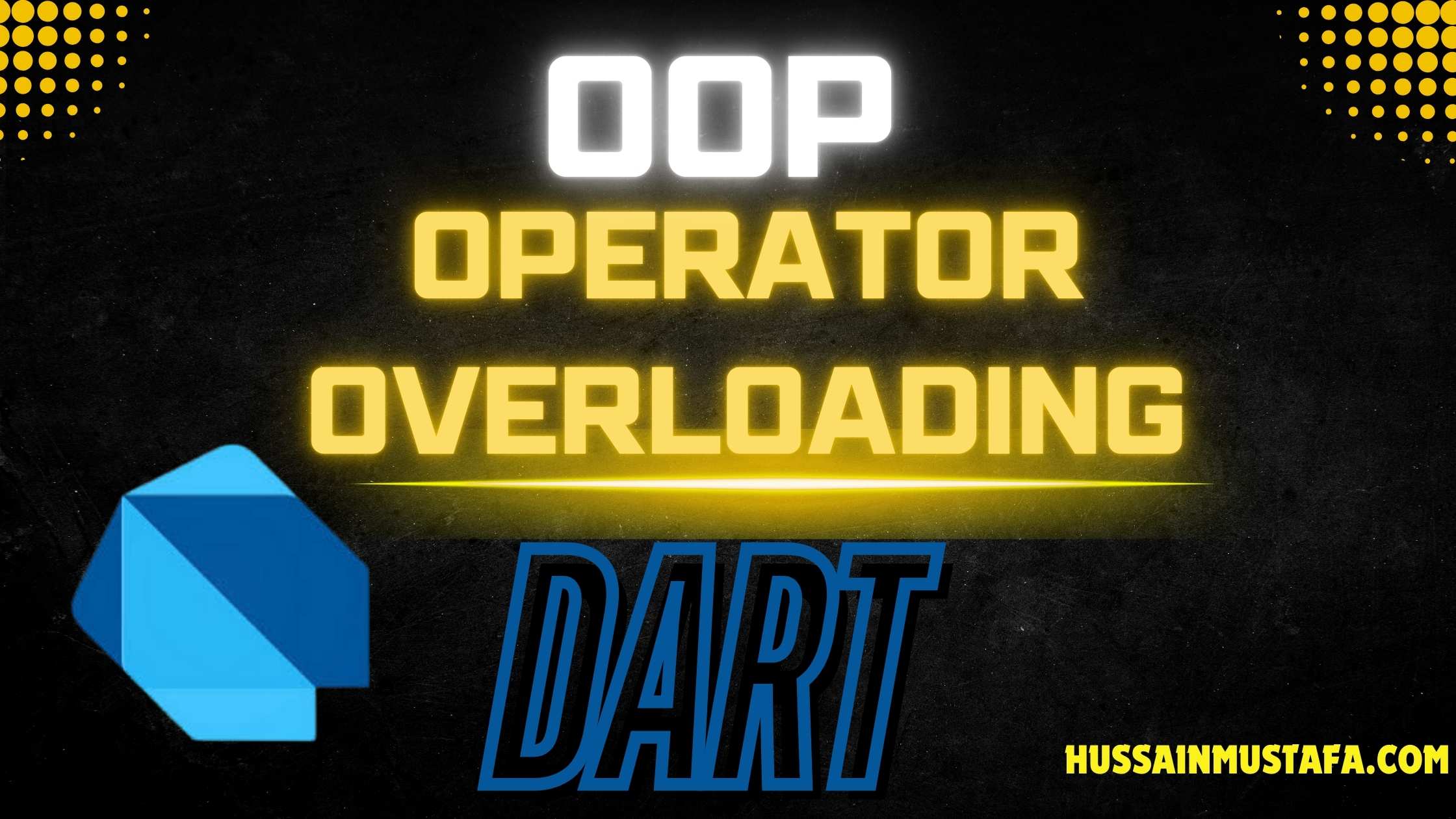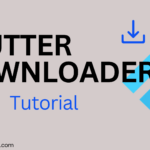Operator overloading is a powerful feature in Dart that allows developers to redefine the behavior of operators for user-defined classes. By implementing operator overloading, you can specify how operators (like +, -, *, etc.) work with instances of your custom classes, enhancing code readability and usability. This guide will cover the concept of operator overloading in Dart, its syntax, benefits, and practical examples.
For further information on other topics of Dart, click here.
For an in-depth exploration of other OOP topics in Dart, such as inheritance, polymorphism, and encapsulation etc, click here.
What is Operator Overloading?
Operator overloading enables a class to define its own implementation for standard operators. This means that you can specify how operators behave when applied to instances of your class. For instance, if you have a Vector class, you can overload the + operator to add two vectors together in a way that makes sense for your application.
Key Concepts of Operator Overloading in Dart:
- Operator Methods: Special methods are defined in your class to overload specific operators.
- Syntax: Operator methods are defined using the
operatorkeyword followed by the operator symbol. - Usability: Overloading operators can make your code more intuitive and easier to read.
Syntax of Operator Overloading
To overload an operator in Dart, you define a method with the operator keyword followed by the operator you want to overload. The method must return the appropriate type, and its parameters will depend on the operator being overloaded.
Example Syntax for Overloading Operators
class Complex {
final double real;
final double imaginary;
Complex(this.real, this.imaginary);
// Overloading the '+' operator
Complex operator +(Complex other) {
return Complex(real + other.real, imaginary + other.imaginary);
}
}Explanation:
In this example, the + operator is overloaded for the Complex class, allowing two complex numbers to be added together using the + operator.
Common Operators You Can Overload
Dart allows you to overload a variety of operators, including:
- Arithmetic Operators:
+,-,*,/,~/,% - Comparison Operators:
==,!=,<,>,<=,>= - Unary Operators:
-,++,-- - Indexing Operator:
[] - String Representation:
toString()
Example of Overloading Multiple Operators
class Vector {
final double x;
final double y;
Vector(this.x, this.y);
// Overloading the '+' operator
Vector operator +(Vector other) {
return Vector(x + other.x, y + other.y);
}
// Overloading the '==' operator
@override
bool operator ==(Object other) {
if (other is! Vector) return false;
return x == other.x && y == other.y;
}
// Overriding toString method
@override
String toString() {
return 'Vector($x, $y)';
}
}
void main() {
Vector v1 = Vector(2, 3);
Vector v2 = Vector(4, 5);
Vector v3 = v1 + v2; // Using overloaded '+' operator
print(v3); // Output: Vector(6.0, 8.0)
print(v1 == v2); // Output: false
print(v1 == Vector(2, 3)); // Output: true
}Explanation:
In this example:
- The
Vectorclass overloads the+operator to allow for vector addition. - The
==operator is overridden to compare twoVectorobjects for equality. - The
toString()method is overridden to provide a string representation of the vector.
Benefits of Operator Overloading
- Improved Readability: Code that uses overloaded operators can be more intuitive and easier to understand.
- Enhanced Usability: You can create classes that behave like built-in types, making them easier to use in expressions.
- Natural Syntax: It allows you to use familiar mathematical or logical operators in your custom classes.
Best Practices for Operator Overloading
- Use When Necessary: Overload operators only when it makes logical sense for the class. Avoid overloading operators in ways that could confuse users of your class.
- Maintain Consistency: Ensure that the overloaded operator behaves consistently with its standard meaning. For example, addition should always result in a sum.
- Document Your Operators: Clearly document the behavior of overloaded operators, especially if they deviate from standard expectations.
Conclusion
Operator overloading is a valuable feature in Dart that enhances the expressiveness and usability of your custom classes. By allowing operators to be defined in a way that is natural for the data types being manipulated, you can create code that is easier to read and maintain. Understanding how to properly implement operator overloading will empower you to design more intuitive APIs and improve your Dart applications. For further exploration of Dart’s capabilities, check out our detailed articles on related topics.
Happy Coding…!!!













Leave a Reply